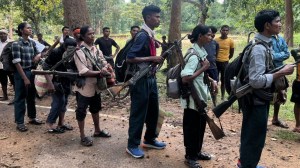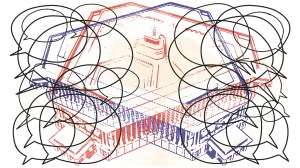Be Asian on human rights
The recent annual United Nations discussions on human rights brought into sharp focus the gradual politicisation of the concept. Sir Stephe...

The recent annual United Nations discussions on human rights brought into sharp focus the gradual politicisation of the concept. Sir Stephen Sedley rightly observed in Human Rights: A 21st Century Agenda that 8220;human rights are a commodity like any other, capable of being traded for political or economic advantage, and the rhetoric little more the conduct of politics by other means8221;.
The United States8217; relations with China are a blatant example of human rights being sacrificed for larger economic gains. Rep. Chris Smith, chairing a meeting of the House International Relations Committee, criticised the Clinton administration for being committed to 8220;the protection of human rights only insofar as such a commitment does not threaten to interfere with anything else it wants to accomplish8221;.
Several Asian countries have seen through the game of the West 8212; that human rights are used more as a political weapon to browbeat an adversary than to promote a liberal concept. Besides, depending on the history and cultural background of a region, there are bound to be variations in the understanding and application of human rights. China and Indonesia have been in the forefront propounding the Asian concept of human rights8217;.
In its White Paper on human rights published in 1991, China took the stand that 8220;for any country or nation the right to subsistence is the most important of all human rights without which the other rights are out of question8221;. One may not place China on a high pedestal in respect of human rights, especially in the context of its treatment of Tibet, but it would be difficult to disagree with the formulation. The Confucian respect for authority and importance of community welfare has always taken precedence over the Western emphasis on individual rights.
Indonesia has taken a similar stand. As one of its officials said, 8220;most of the Asian countries happen to be at the level of development which necessitates the accordance of priority to the fulfilment of the most basic rights of peoples such as the eradication of illiteracy, the alleviation of poverty, the improvement of health and the creation of employment opportunities8221;. After all, how could a person express his views freely if he was illiterate, enjoy material happiness if he was below the poverty line, or form a labour union if he was unemployed?
Singapore and Malaysia have taken a slightly different but typically anti-Western stance. Both are of the view that irrespective of the level of development, some curbs on individual freedom are essential for peace and order in the society. Lee Kuan Yew, Singapore8217;s senior minister, found 8220;parts of the American system totally unacceptable: guns, drugs, violent crime, vagrancy, unbecoming behaviour in public 8212; in sum, the breakdown of civil society8221;. The freedom given to an individual to behave or misbehave as he liked, according to him, was 8220;at the expense of orderly society8221;.
Kishore Mahbubani, a Singapore diplomat, expressed the view that 8220;too much freedom can lead to crime and social anarchy. Too many human rights which place criminal rights ahead of victims8217; concerns can also produce social disorder8221;.
Malaysia8217;s Mahathir Mohamad has been a vehement critic of the Western advocates of democracy and human rights. He has even gone to the extent of questioning the relevance of Universal Declaration of Human Rights, and said that the 8220;political rights8221; were outdated and unsuited to developing countries.
The Indian political leadership has, however, not had the courage to take an independent stand on the subject and has all along been on the defensive. We have swallowed the Western concept and its interpretation by the double standard experts.
Without denying the importance of human rights, the need to observe and enforce them, and punish those guilty of violating them, it is necessary that we stop being defensive on the subject, tell the world unabashedly that the unity and integrity of the country are of paramount importance to us, hold the mirror before the hypocrites who fail to see the chinks in their own armour, and above all, ensure that emphasis on human rights does not blunt the counter-insurgency operations of the security forces.The writer is a former Director General of BSF
- 01
- 02
- 03
- 04
- 05































